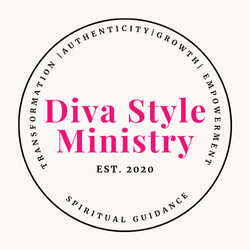Making the decision to start and maintain a journal is usually far easier than actually performing the action of journaling. There is no right or wrong way to journal – you can use an electronic method, a visual one  where you draw what’s on your mind, a handwritten one, or any of several other journaling methods.
where you draw what’s on your mind, a handwritten one, or any of several other journaling methods.
What’s important is that you choose a method that fits your individual style and your level of motivation. You want to make this an authentic practice that also supports your spiritual growth. Once you begin journaling, you can shift your style or change out your style for another that makes more sense or is a better fit for who you are and who you are becoming.
Here are some intentional questions to ask yourself before you start to journal:
- How do I want to express myself when I journal? You can write, record an audio journal with your voice, record music, or use your artistic skills to draw or paint your journal entries. What calls to your authentic creative side?
- How much time do I have to spend journaling? Consistency is important – it’s better to set aside 15 minutes per day on a regularly scheduled basis than to ignore your journal for days on end, then binge-journal on the weekend “if you have time.”
- Where do I want to do my journaling? Do you have a calm, serene workspace or personal space at home? Is your creativity sparked by being outside in the natural environment, or perhaps your journal entries will take the form of artwork that you create by drawing, photography, or music? Plan to put yourself in a space where you have what you need close at hand to get started.
- Is there an activity I love that I can use as a form of journaling? Think out-of-the-box, like perhaps using a garden plot as a type of journal where you document the plantings, yields, and the neighboring birds and insects that come to visit your garden. What about returning to a specific favorite spot to photograph it at regular intervals during each season – like every week during the springtime to document growth and change?
- What is my goal in creating this journal? Are you working through a challenge, or just wanting to spend some time in a serene and quiet space? Do you want to indulge an interest or a hobby, or just spend time doing literally nothing and just breathing?
Answering these questions helps you choose the best method and time frame to begin journaling. Now all you need is to pick the method and time frame that suits you and begin.
Consider these things when making your decision:
Tools Matter- If you decide to journal long-hand and write your entries out 
If you are using an electronic notebook, laptop computer or tablet, make sure you are in a comfortable space where ever you work – an ergonomic desk and keyboard or a lap desk can be timely and much-needed tools to help you journal safely and effectively. Be on the lookout for other tools like daylight-balanced task lighting that will make the activity fun, healthy, and help make good use of your precious time.
Time is key- Find a time when you have peace and quiet, fewer distractions, and are fully charged to do your journaling if that’s what 
Is there a favorite type of music that stimulates your creative juices? Play that music in your headphones or in the room where you journal. Depending on your preferred atmosphere, you may need to get up a little earlier – before the family wakes in the morning – or stay up a little later after they go to bed.
Perhaps you will have to journal in the car between activities for your kids, or during your commute on the train before heading back to your car to go home. Be intentional about creating a routine you can count on when you start to journal and take into account the fact that your journal does not always have to be written – it can take one of many forms, and could even be a multi-media journal!
Spacial Awareness- Time may be a limited commodity, but there are ways to increase your productivity when journaling. Reduce distractions including unnecessary noises. Turn off the radio, television, or close your door. Go outside and listen to the sound of nature or turn on a fan or white noise device. Limit the number of people in and around your preferred journaling space and consider using scented diffusing oils or having a scented candle burning if that enhances your environment.
Do what comes naturally- The best way to begin journaling is by doing what already comes naturally. If you love to write, get to it. If you are a list maker, start listing your thoughts down in nice neat rows. If you are a talker and a runner, consider an audio journal that you can dictate into while you do double duty as you exercise. Are you an artist? Keep a sketch pad or notebook with you along with pencils to capture your artistic inspiration as journal entries.
Have a why- Anytime there is a solid why to what you do, you are more likely to stick with it. Knowing why you are journaling helps get you going and keeps you going. If you are trying to lose weight or manage a health issue, knowing that you are journaling your food intake for your health will help to keep you motivated.
Starting and keeping a journal isn’t difficult and the fun begins when you make the decision to start. From finding the perfect tools to expressing yourself in a natural and effortless way, you will be on your way to recording important history about your life, your passions and motivations, your challenges and successes, and a deeper understanding of your heart and your soul before you know it.






